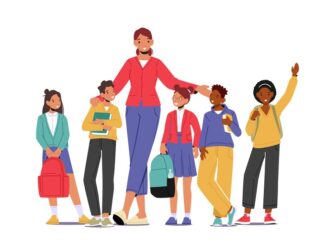
As reported by GOV.UK, the UK government has released updated guidelines for 2023, applicable from September 1st
Aimed at school business leaders, these guidelines provide essential information and responsibilities for those overseeing educational institutions. Here are the key points that SBLs need to know:
- Statutory duty to safeguard
The document reaffirms the statutory duty of SBLs to safeguard children. This includes not only addressing immediate safety concerns but also considering the broader well-being and mental health of students. Leaders must understand their legal obligations in this regard and ensure staff members are trained and aware of these responsibilities.
- Safer recruitment
The guidelines stress the importance of robust recruitment practices. SBLs must ensure that all staff undergo thorough background checks and are appropriately qualified for their roles. This includes checking for any past misconduct and verifying the authenticity of qualifications. The guidelines also provide updated information on the disclosure and barring service checks.
- Online safety
Given the increasing reliance on technology in education, the guidelines place significant emphasis on online safety. SBLs must develop and maintain a comprehensive online safety policy, addressing issues such as cyberbullying, inappropriate content, and online predators. Adequate filtering and monitoring systems should be in place to protect students.
- Peer-on-peer abuse
The document highlights the importance of recognizing and addressing peer-on-peer abuse, which can take various forms such as bullying, sexual harassment, and domestic violence. SBLs must ensure that staff are trained to identify signs of abuse and respond appropriately. Additionally, a clear reporting mechanism should be established for students to safely disclose any abuse they may experience.
- Mental health and well-being
Recognizing the impact of mental health on a student’s ability to learn and thrive, the guidelines call for a proactive approach to supporting mental health and well-being. SBLs are encouraged to develop a whole-school approach that promotes positive mental health and provides access to appropriate support services for students in need.
- Staff training
School business leaders should prioritize staff training on safeguarding and child protection. Regular training sessions should cover the latest developments in child protection and ensure that all staff members can recognize and respond to signs of abuse or neglect. The guidelines provide links to additional training resources and information.
- Reporting and record-keeping
The guidelines stress the importance of maintaining accurate records of safeguarding concerns and incidents. SBLs must ensure that staff are aware of the reporting procedures and that concerns are addressed promptly and appropriately. Effective record-keeping is essential for monitoring and reviewing safeguarding practices.
- Supporting children with SEND
Children with special educational needs and disabilities (SEND) may be more vulnerable to abuse and neglect. SBLs must take extra care to ensure that these students receive the support and protection they require. The guidelines provide specific guidance on meeting the needs of children with SEND in the context of safeguarding.
- Working with other agencies
To provide comprehensive protection for children, schools must work in collaboration with other agencies, such as social services and healthcare providers. School business leaders should establish effective partnerships to share information and coordinate support for at-risk children.
- Governance and accountability
The document emphasizes the role of school governors and trustees in holding school leaders accountable for safeguarding. Effective governance structures should ensure that safeguarding is a top priority, and regular reviews should assess the effectiveness of safeguarding practices within the school.
Read the full report HERE.


Be the first to comment